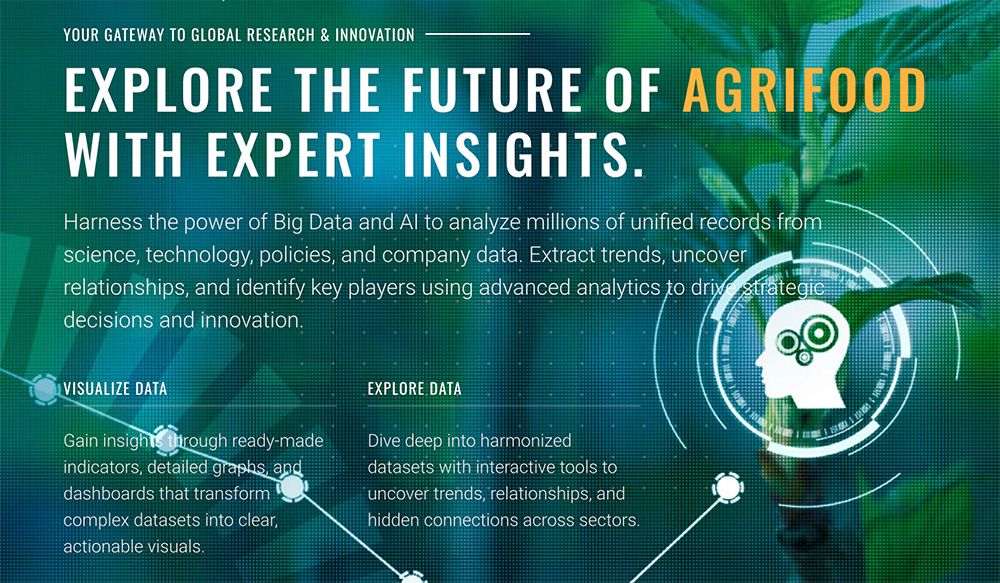We create value from data
The OPIX AI Platform: End-to-End Intelligence

Data Collection, Cleaning, and Integration
The OPIX.AI Platform seamlessly integrates data from diverse sources, including scientific publications, patents, company data, funding reports, and regulatory information. However, raw data alone is not enough. Our platform goes beyond aggregation to ensure clean, structured, and interconnected datasets that provide reliable insights.
To achieve this, we apply advanced data cleaning, normalization, and disambiguation techniques, ensuring that entities such as organizations, technologies, and key actors are correctly identified and linked across datasets. Our AI-driven entity resolution methods eliminate redundancies, resolve inconsistencies, and enhance the accuracy of connections between companies, research outputs, and market activities. This ensures that the data foundation is robust, up-to-date, and ready for deep analysis.
Extracting Information and Knowledge
Using Large Language Models (LLMs), the OPIX.AI Platform automatically identifies emerging technologies, maps their relevance across industries, and pinpoints key players shaping the competitive landscape. However, recognizing that each sector has distinct technological trajectories, regulatory landscapes, and competitive dynamics, our approach is sector-specific rather than generic.
This sector-by-sector approach ensures that insights are not only precise but also context-aware, reducing the risk of AI-driven misclassification and enhancing the trustworthiness of our intelligence. By aligning AI processing with industry-specific parameters, we provide decision-makers with reliable, actionable insights that truly reflect the complexities of their respective sectors.
Innovation Smart Indicators: Insights for Strategic Decision-Making
Once data is harmonized, the OPIX.AI Platform employs advanced AI-driven indicators to process and structure vast amounts of information, uncovering meaningful relationships between technologies, companies, and key actors and compute "signals" in the innovation ecosystem. These indicators go beyond simple analytics, identifying emerging trends, assessing competitive positioning, and mapping innovation networks. Through Natural Language Processing (NLP), Machine Learning (ML), and Knowledge Graphs, the platform dynamically links technologies with their applications, market relevance, and industry impact.
Visualizing the Competitive Landscape
The platform’s interactive dashboards and advanced visualizations provide intuitive representations of the technology and industry landscape. Through custom reports, dynamic maps, and sector-specific analytics, users can:
- Understand technology positioning within global markets.
- Benchmark companies, startups, and research institutions against competitors.
- Explore sectoral trends, collaborations, and funding flows.
Sector-Specific Configurability: Tailored Intelligence for Every Industry

The OPIX.AI Platform is designed to be fully configurable per sector, ensuring that insights are highly relevant, accurate, and actionable for industries such as agrifood, water management, energy, automotive, and more. Our approach goes beyond generic analytics by curating sector-specific data, integrating targeted company profiles, industry regulations, and specialized indicators, all while keeping a human-in-the-loop validation process to enhance precision and trust.
At the core of this adaptability is our robust backend infrastructure, which features extensible data pipelines capable of incorporating new datasets with minimal effort. This allows us to rapidly fine-tune AI models, enrich indicators, and align analytics with industry-specific challenges. Our team has built deep expertise in drilling down into domain-specific intelligence, ensuring that each sector benefits from highly contextualized insights, tailored benchmarks, and regulatory-aware intelligence.
With this scalable and modular architecture, the OPIX Platform empowers decision-makers to navigate their industry’s unique innovation landscape with confidence, leveraging customized AI-driven intelligence for strategic growth, investment, and policy development.
See OPIX.AI in Action – Request a Demo
Discover how the OPIX.AI Platform can transform your data into actionable insights. Contact us for a personalized demo and let’s discuss your specific needs. Whether you’re looking to map emerging technologies, analyze competitive landscapes, or leverage AI-driven intelligence, we can tailor our solutions to fit your industry and objectives.